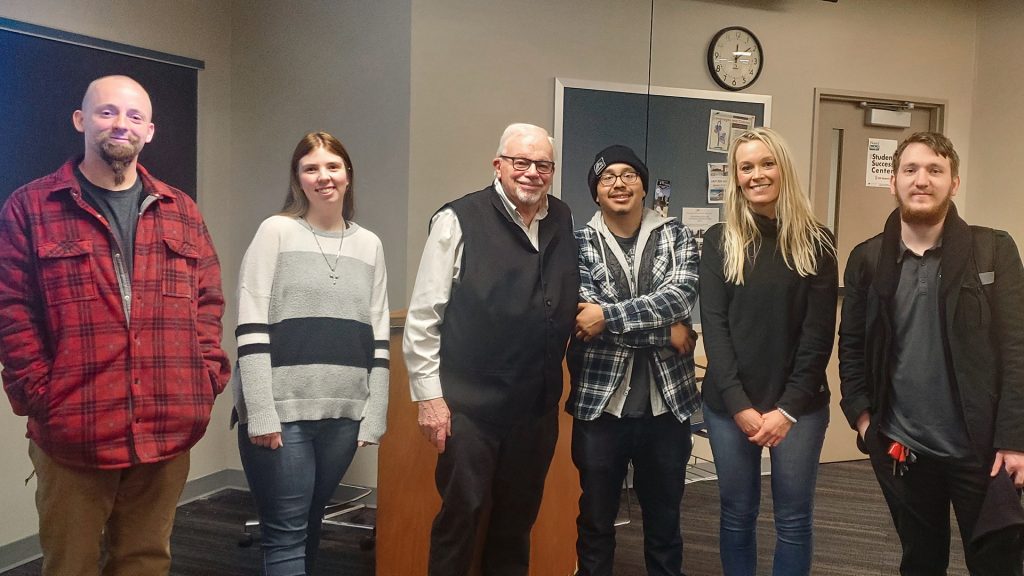Students in Dr. Lindsey Vigesaa’s Theories of Crime and Justice class had the honor of welcoming guests from the Overcomers International Fellowship (OIF) in St. Cloud on March 23. Under the leadership of Pastor Michael Laidlaw, OIF serves as a bridge to men who are released from prison or civil commit, among other populations.

OIF residents are taught and given the tools to have accountability for their actions and two of their residents shared their stories and how they are working today to better their lives.
Luis, who spent most of his young adult life in prison, always felt “cool” while committing his crimes. After presenting, he shared his pride with Dr. Vigesaa. “All I have ever done was make my mom cry,” he said. At the end of class he requested a photo be taken so he could show him mom he was doing something good.
Talking about the things he is ashamed of is incredibly difficult for Adam, but understands it is part of his recovery to be accountable for his actions. “I’ve got to get comfortable in my own skin,” he told the class. He is now four years sober and able to hold his head high.
Adam also spoke about the efforts he took while in prison to better himself and prepare for life after incarceration. With very limited access to computers and internet, inmates are often left to using paper mailing systems. Correspondence that could take a day or two often takes weeks, and sometimes months, while in prison.
OIF’s residents are often in need of great support with 63% meeting the criteria for “triple stigma,” meaning they have a history of a mental illness diagnosis, substance abuse, and incarceration. Brittney Clark, a senior Criminal Justice and Sociology double major works as a case worker where she helps residents obtain health insurance, birth certificates, and other resources across the board. With her experience she feels she is “far beyond her peers” when it comes to being ready to graduate and enter the workforce.
For a student preparing to enter the field of criminal justice after graduation, David Hudson was disappointed to hear how the internal prison system works for transitioning an inmate back to civilian life. “They really need to find a way to create a faster messaging system and maybe even create a new position of transition officer that helps people transitioning out of prison get a head start on getting their life together on the outside,” he said.
Presentations and experiences such as these are of high value to Criminal Justice students and to the men of OIF. “I love this event because it is so beneficial for all parties involved. The guys truly own it and it is so inspiring,” said Vigesaa.
